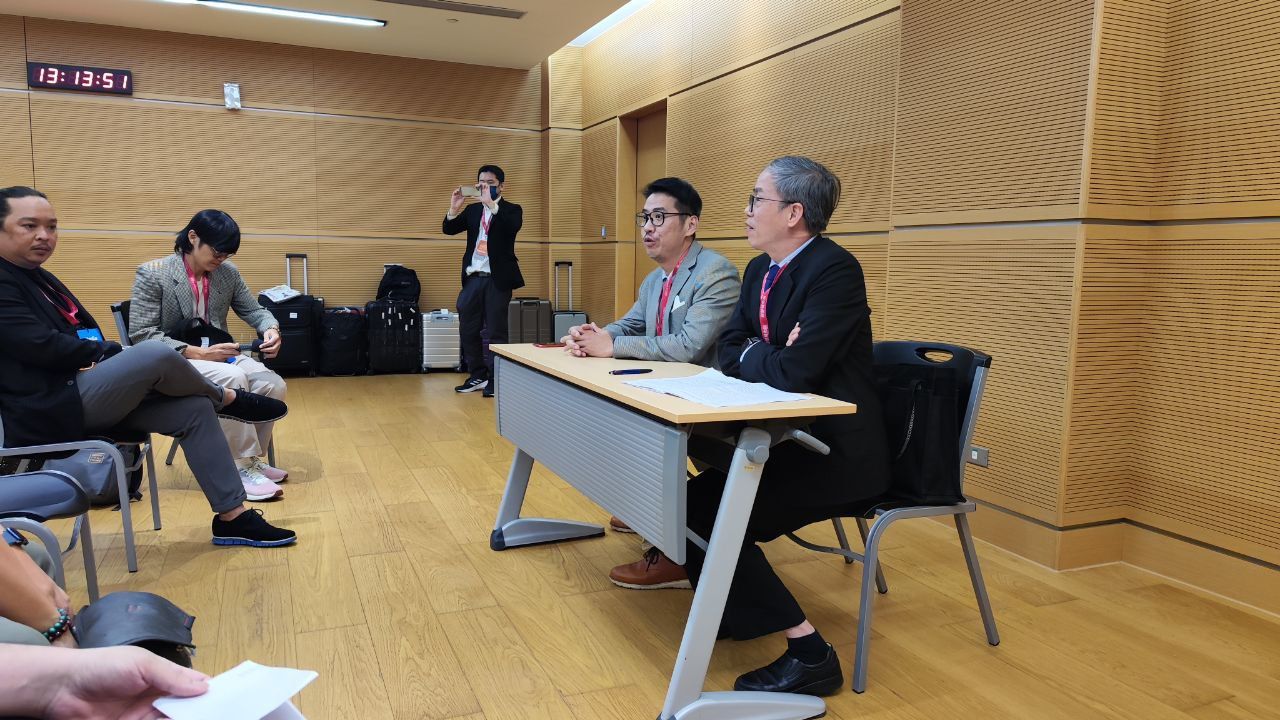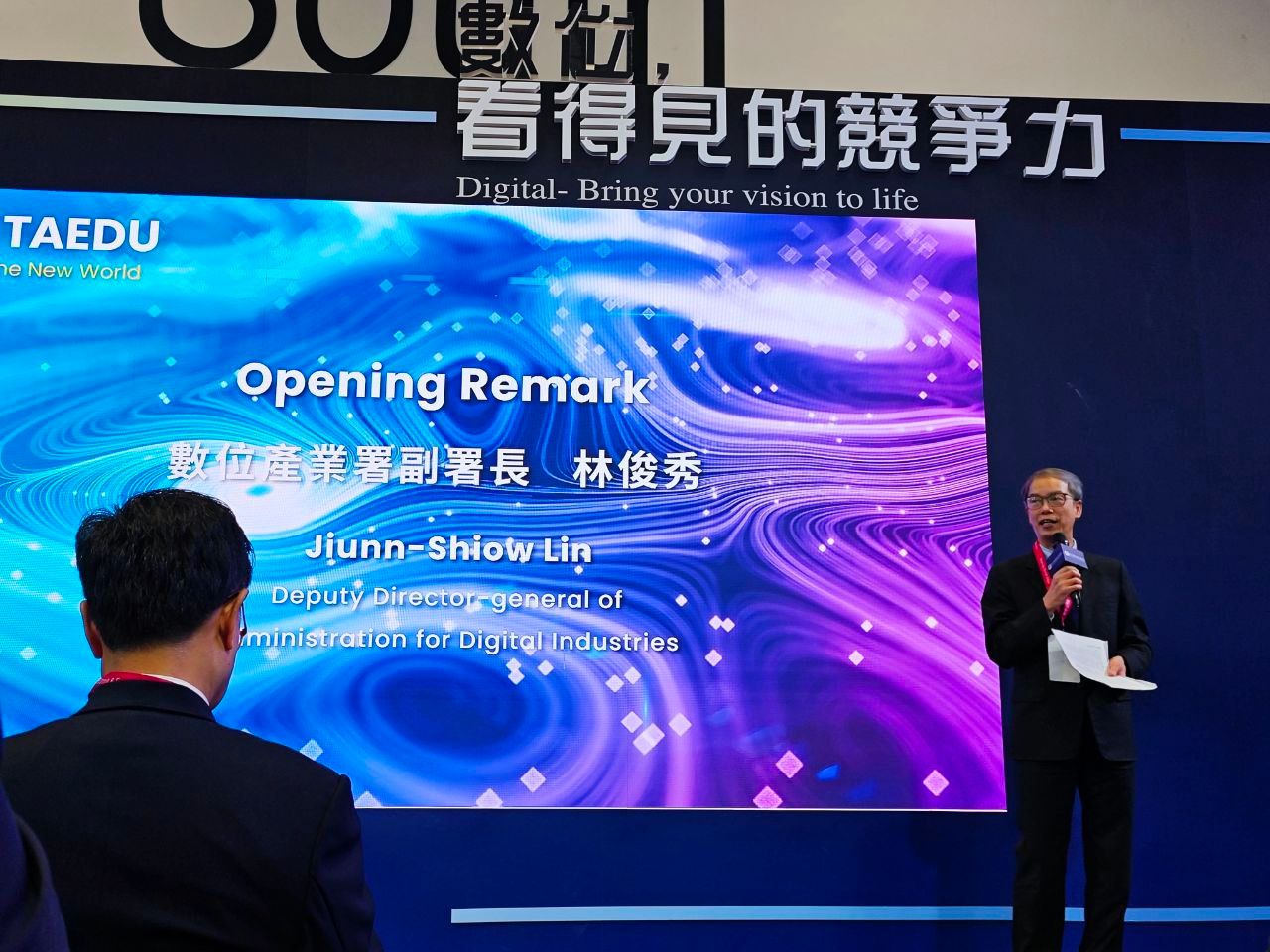Taiwan's EdTech Outlook - An Interview with Lin Jiunn-Shiow
We had the opportunity to interview the Deputy Director-General of the Administration for Digital Industries (ADI), Ministry of Digital Affairs (moda), Lin Jiunn-Shiow to learn more about EdTech in Taiwan.

Education Technology (EdTech) is one of the key industries that has seen tremendous growth in the recent years. EdTech was one of the topics of focus at this year's Smart City Summit & Expo (SCSE) held in Taipei.
We had the opportunity to interview the Deputy Director-General of the Administration for Digital Industries (ADI), Ministry of Digital Affairs (moda), Lin Jiunn-Shiow to learn more about EdTech in Taiwan. The interview was conducted with other media from Southeast Asia present.

What are the objectives of EdTech development in Taiwan? How do you see the current state of EdTech development in Taiwan?
Taiwan has been actively integrating technology into education. We have made significant progress in implementing EdTech tools in schools, universities, and other educational institutions and continue to invest in developing new and emerging technologies to enhance the education system.
In the previous year, the EdTech industry in Taiwan generated an output value of US$18.6 billion. This growth was primarily driven by the high demand for Chromebooks and the expansion of digital content during the pandemic.
EdTech tools are rapidly gaining popularity in both formal and informal learning settings. These tools comprise hardware like laptops and tablets, as well as learning management systems, online platforms, adaptive software, and even virtual reality application.
With accessibility to educational resources from anywhere, these tools are fostering more inclusive education, catering to diverse learning styles. In Taiwan, a thriving EdTech industry offers many innovative solutions. For instance, international brands such as Aver, Viewsonic, and BENQprovide visual solutions and document cameras for teachers, making it effortless for them to share and present information to their students.
A focus on collaboration among educators, policymakers, and technology providers is needed to address pressing challenges. We recognize that the effective integration of technology into education requires a multifaceted approach involving all stakeholders in the education system.
How does Taiwan's approach to EdTech differ from other countries, and where do you think are the prospects of growth in this industry?
Taiwan plays a key role in the global ICT supply chain, and its commitment to innovation and investment in EdTech has resulted in a thriving industry that is well-positioned to lead in the development of new and emerging technologies for education.
However, Taiwan has a relatively small domestic market size compared to other Southeast Asian countries. This limits the potential user base for EdTech companies in Taiwan.
Many EdTech companies in Taiwan are small or medium-sized businesses, and mainly focus on the domestic market. This can make it difficult for these companies to scale up and expand their user base. By using Taiwan as a testbed, ADI advises and assists these companies to look outwards for broader markets outside of Taiwan.
Are there any challenges in the implementation of EdTech?
Qualified and trained teachers are crucial to digital education. While technology can enhance learning, it cannot replace the role of a teacher in facilitating and guiding student learning.
Therefore, we need to invest in teacher training and development to ensure that they can effectively integrate technology into their teaching. Ongoing support and professional development opportunities should also be provided to keep teachers up-to-date with the latest educational technology. By prioritizing teacher training and development, we can ensure that students receive a high-quality education using digital tools to their full potential.
There are also data privacy and security concerns around digital education, which involves the collection and sharing of student data. To address this challenge, Taiwan has implemented robust data privacy and security measures, including encryption, access controls, and policies that prioritize student privacy.
Looking to the future, Taiwan aims to continue leveraging technology to enhance educational outcomes and promote lifelong learning. This includes developing new learning technologies and approaches, as well as integrating EdTech into traditional classroom settings.
How do you think Taiwan's EdTech Industry will support the Education Ecosystem in the future?
The Taiwan EdTech Industry seeks to collaborate with overseas partners to develop and implement new education technologies and approaches. By working with other countries, Taiwan hopes to share its expertise and learn from the experiences of others, ultimately creating a more innovative and effective education ecosystem for all learners.
Concluding Remarks
In conclusion, Taiwan's approach to EdTech has been successful in creating a robust and innovative industry, addressing pressing challenges, and promoting equitable access to education. With its continued investment and commitment to EdTech, Taiwan is well positioned to lead in the development of new and emerging technologies

About Lin Jiunn-Shiow and the Administration for Digital Industries
Lin Jiunn-Shiow (林俊秀)is the Deputy Director-General of the Administration for Digital Industries, Ministry of Digital Affairs (moda) for Taiwan. The administration's main missions are to promote development of the digital economy, guide, award, and manage digital economy-related industries.
The Administration is the competent authority on digital economy development, in charge of digital economy-related industry policy planning and regulation drafting as well as digital technology application promotion, which encompasses artificial intelligence, big data, platform technology, system integration and field applications, software products and digital services, digital content and data economy, and digital economy-related industry talent cultivation.


